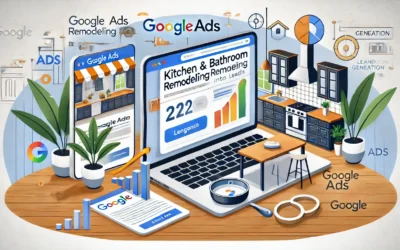In the competitive field of legal services, effective digital marketing is essential for attorneys to attract new clients and build their reputation. However, legal professionals must navigate the complexities of marketing while adhering to strict ethical guidelines and regulations. Here’s a guide to creating effective attorney digital marketing campaigns while staying in compliance.
Understanding Ethical Guidelines and Regulations
Before diving into digital marketing strategies, it’s crucial to understand the ethical guidelines and regulations that govern attorney advertising. The American Bar Association (ABA) and state bar associations set these rules to ensure that legal marketing is truthful, not misleading, and respectful of client confidentiality.
Key Ethical Considerations:
- Truthfulness: All marketing materials must be truthful and not misleading. Avoid making false claims or guarantees about your services.
- Confidentiality: Protect client confidentiality in all communications and avoid sharing any identifying information without consent.
- Solicitation Rules: Direct solicitation of clients, particularly in-person or real-time electronic communication, is often restricted. Familiarize yourself with the specific rules in your jurisdiction.
- Disclaimers: Include necessary disclaimers to clarify that information provided does not constitute legal advice and does not create an attorney-client relationship.
Developing a Digital Marketing Strategy
An effective digital marketing strategy for attorneys should encompass various online channels to reach potential clients. Here are some key components to consider:
1. Build a Professional Website
Your website is the cornerstone of your digital presence. It should be professional, easy to navigate, and optimized for search engines. Include essential information such as your practice areas, attorney bios, contact details, and client testimonials.
2. Leverage Content Marketing
Content marketing is an excellent way to showcase your expertise and provide value to potential clients. Regularly publish blog posts, articles, and legal guides on topics relevant to your practice areas. This not only helps with SEO but also positions you as a thought leader in your field.
3. Optimize for Local SEO
Local SEO is crucial for attorneys, as most clients search for legal services within their geographic area. Optimize your website and Google My Business listing with local keywords, accurate contact information, and positive client reviews.
4. Utilize Social Media
Social media platforms like LinkedIn, Facebook, and Twitter can help you connect with potential clients and other professionals. Share informative content, engage with your audience, and participate in relevant discussions to build your online presence.
5. Email Marketing
Email marketing is a powerful tool for nurturing leads and maintaining client relationships. Send regular newsletters with updates on legal news, practice insights, and helpful resources. Ensure your email list is segmented to target different audience groups effectively.
6. Pay-Per-Click (PPC) Advertising
PPC advertising can drive targeted traffic to your website. Create ads that highlight your services and include relevant keywords. Be mindful of your ad copy to ensure it complies with ethical guidelines and provides clear, truthful information.
7. Video Marketing
Video content is highly engaging and can help you explain complex legal concepts in an accessible way. Create videos that introduce your firm, explain your services, and provide legal tips. Share these videos on your website, social media, and YouTube.
Staying in Compliance
While executing your digital marketing strategy, it’s essential to stay compliant with ethical guidelines. Here are some tips to ensure your campaigns adhere to the rules:
1. Review State Bar Rules
Each state has its own rules regarding attorney advertising. Regularly review the guidelines set by your state bar association and ensure your marketing materials comply with these rules.
2. Include Necessary Disclaimers
Include disclaimers on your website, blog posts, and marketing materials to clarify that the information provided does not constitute legal advice and that no attorney-client relationship is formed.
3. Monitor Social Media Activity
Be cautious about how you engage on social media. Avoid discussing specific client cases and always maintain professionalism. Regularly review your social media content to ensure compliance with ethical standards.
4. Obtain Client Consent
If you wish to share client testimonials or case studies, obtain written consent from your clients. Ensure that any shared information does not violate client confidentiality or privacy.
5. Be Transparent in Advertising
Ensure that all advertising claims are truthful and not misleading. Avoid making guarantees or promises about case outcomes. Clearly communicate your services and any associated costs.
Conclusion
Creating effective digital marketing campaigns for your law practice requires a balanced approach that combines strategic planning with strict adherence to ethical guidelines. By building a professional online presence, leveraging various digital marketing channels, and staying compliant with regulations, you can attract more clients and enhance your reputation. At Web Liftoff, we specialize in helping attorneys develop and implement successful digital marketing strategies. Let us help you navigate the complexities of attorney marketing and achieve your business goals.



